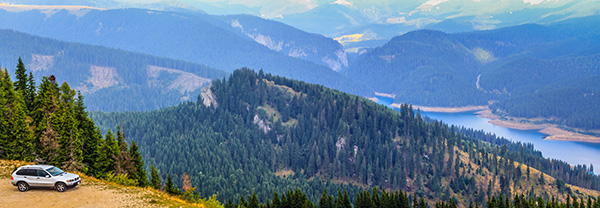
Oregon is famous for its breathtaking mountain landscapes, and Eugene, OR, is perfectly positioned as a gateway to many of these scenic routes. However, the beauty of these roads comes with a unique set of challenges. From winding curves to unpredictable weather, driving through Oregon’s mountain roads demands preparation and caution. So, how can you ensure a safe journey? Let’s explore some key strategies to navigate these roads like a pro.
Understand the Terrain and Conditions
Mountain roads in Oregon are anything but ordinary. You’ll encounter sharp turns, steep inclines, and sudden descents, often with limited guardrails. Before setting off, familiarize yourself with the route using a reliable GPS or map. Take note of potential hazards, such as narrow stretches or areas prone to rockslides.
Weather plays a significant role, too. In higher altitudes, conditions can change rapidly. Even if it’s sunny when you leave Eugene, OR, you could face rain, snow, or fog as you climb into the mountains. Always check the forecast and be prepared for the unexpected.
Essential Preparations for Your Vehicle
Your car’s condition can make or break your trip through the mountains. Here’s a quick checklist to ensure your vehicle is up for the challenge:
- Brakes: Mountain driving puts extra stress on your brakes, especially during descents. Have them inspected and make sure they’re in top shape.
- Tires: Proper tire pressure and good tread are non-negotiable for gripping winding roads. If snow or ice is in the forecast, consider carrying chains or switching to winter tires.
- Lights and Wipers: Visibility can drop in foggy or stormy weather, so check that all your lights are functioning and your windshield wipers are effective.
Spare fluids, a flashlight, and an emergency kit are also must-haves. It’s always better to be over-prepared than caught off guard.
Adjust Your Driving Techniques
Driving through mountain terrain is very different from navigating city streets. Here are some tips to keep in mind:
- Go Easy on the Gas and Brakes: Sudden acceleration or braking can cause your tires to lose traction, especially on wet or icy roads.
- Use Low Gears: On steep descents, use a lower gear to maintain control without overworking your brakes. This reduces the risk of overheating or brake failure.
- Take Turns Cautiously: Always approach curves at a safe speed, as sharp corners can hide oncoming vehicles or wildlife.
Patience is key here—rushing through mountain roads is never worth the risk.
Be Prepared for Wildlife Encounters
Oregon’s mountain roads are home to diverse wildlife, and it’s not uncommon to spot deer, elk, or even smaller critters crossing the roads. Stay alert, especially during dawn and dusk when animals are more active.
If you see wildlife ahead, slow down gradually and avoid swerving. Swerving can lead to collisions with other vehicles or obstacles like trees or rocks. Keep your headlights on and use your horn sparingly to warn animals of your presence.
How to Handle Emergencies on Mountain Roads
No one plans to get stuck on a mountain road, but emergencies can happen. Whether it’s a flat tire, an overheating engine, or unexpected weather conditions, having a plan can reduce stress and keep you safe.
- Pull Over Safely: If you experience car trouble, pull off the road as far as possible. Use hazard lights and reflective triangles to alert other drivers.
- Stay Warm: If you’re stranded in cold weather, conserve your car’s fuel by running the heater intermittently. Layer on extra clothing to preserve body heat.
- Call for Help: Cell service may be limited in some areas, so it’s smart to carry a charged power bank for your phone.
Knowing your surroundings and staying calm will go a long way in managing any roadside issue.
Tips for a Comfortable and Safe Journey
Long mountain drives can be tiring, so comfort is just as important as safety. Make sure to take breaks at designated rest areas or viewpoints to stretch and enjoy the scenery. Staying hydrated and keeping snacks on hand will help maintain your focus during the drive.
Lastly, remember to keep your gas tank at least half full. Remote mountain roads may not have many gas stations, and you don’t want to risk running out of fuel.
Don’t leave your next mountain adventure to chance. Bring your car to Small World Auto Repair in Eugene, OR, for expert inspections and repairs. Your safety is our top priority!